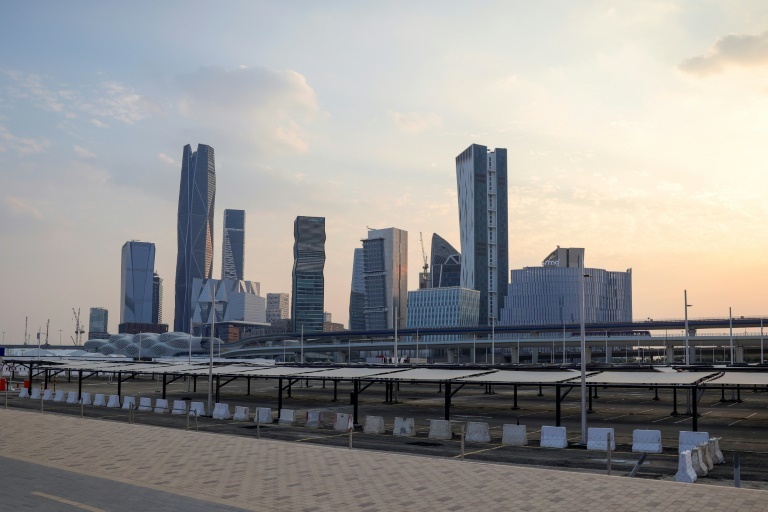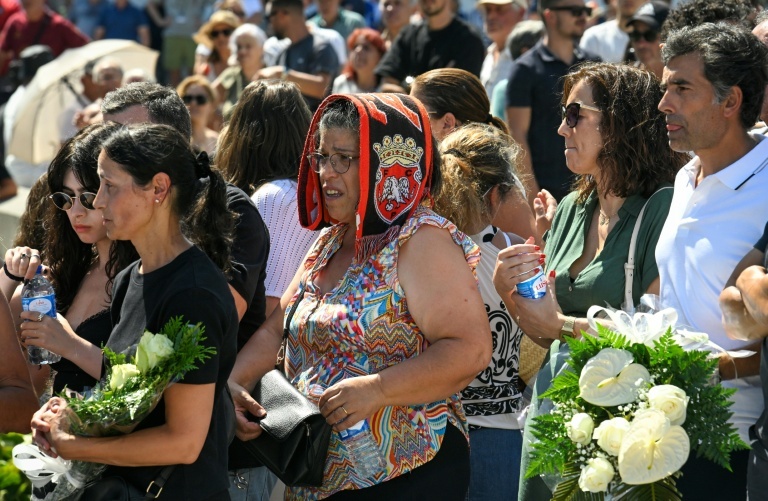HRW slams Saudi labour abuses ahead of 2034 World Cup vote

Human Rights Watch criticised the treatment of migrant workers on construction projects in Saudi Arabia Wednesday ahead of the expected confirmation of the kingdom's hosting of the 2034 World Cup.
8 months ago
The New York-based rights group reported working conditions it said amounted to "forced labour", even on high-profile megaprojects at the heart of Saudi's ambitious Vision 2030 economic reform programme.
HRW said the malpractice included "exorbitant recruitment fees, rampant wage theft, inadequate protections from extreme heat, restrictions on transferring jobs and uninvestigated worker deaths".
The abuses affected migrant workers at every stage of their association with the oil-rich Gulf monarchy, from recruitment to their return home, Human Rights Watch said.
Risks are worsened by pressure to meet "unrealistic, tight deadlines for projects", HRW said, citing interviews with 155 former and current migrant workers and families of deceased workers across employment sectors and regions.
"Every day, one or two workers faint, including during mornings and evenings, sometimes on the way to work, sometimes while working," said one worker on NEOM, a futuristic mega-city that is the kingdom's most ambitious project.
Like other Gulf countries, Saudi Arabia is home to millions of Indian, Pakistani and Filipino workers in low-paid, menial jobs that are largely avoided by citizens.
Despite labour law reforms introduced in 2021, workers said they continue to depend on their employers to change jobs or leave the country, a system that the rights group describes as exploitative.
Human Rights Watch said it had obtained government figures showing 884 Bangladeshis died in Saudi Arabia between January and July 2024, with 80 percent of the deaths attributed to "natural causes".
The widow of one deceased Indian plumber told the rights group her husband "did not have any health issues" and his family "do not believe that he died of natural death" although it was recorded on his health certificate.
Human Rights Watch said football's governing body FIFA had "engineered the World Cup hosting process to ignore the blatant human rights risks, including forced labour".
"The human engine powering the construction of Saudi Arabia's multibillion-dollar giga-projects is the migrant workforce, who are facing widespread rights violations in Saudi Arabia without any recourse," said HRW's deputy Middle East director, Michael Page.
In its evaluation of the kingdom's bid, published on Saturday, FIFA described the Saudi bid as "a very strong all-round proposition", but cautioned that Saudi Arabia's human rights commitments could require "significant effort and time" before the 2034 World Cup.
HRW said the malpractice included "exorbitant recruitment fees, rampant wage theft, inadequate protections from extreme heat, restrictions on transferring jobs and uninvestigated worker deaths".
The abuses affected migrant workers at every stage of their association with the oil-rich Gulf monarchy, from recruitment to their return home, Human Rights Watch said.
Risks are worsened by pressure to meet "unrealistic, tight deadlines for projects", HRW said, citing interviews with 155 former and current migrant workers and families of deceased workers across employment sectors and regions.
"Every day, one or two workers faint, including during mornings and evenings, sometimes on the way to work, sometimes while working," said one worker on NEOM, a futuristic mega-city that is the kingdom's most ambitious project.
Like other Gulf countries, Saudi Arabia is home to millions of Indian, Pakistani and Filipino workers in low-paid, menial jobs that are largely avoided by citizens.
Despite labour law reforms introduced in 2021, workers said they continue to depend on their employers to change jobs or leave the country, a system that the rights group describes as exploitative.
Human Rights Watch said it had obtained government figures showing 884 Bangladeshis died in Saudi Arabia between January and July 2024, with 80 percent of the deaths attributed to "natural causes".
The widow of one deceased Indian plumber told the rights group her husband "did not have any health issues" and his family "do not believe that he died of natural death" although it was recorded on his health certificate.
Human Rights Watch said football's governing body FIFA had "engineered the World Cup hosting process to ignore the blatant human rights risks, including forced labour".
"The human engine powering the construction of Saudi Arabia's multibillion-dollar giga-projects is the migrant workforce, who are facing widespread rights violations in Saudi Arabia without any recourse," said HRW's deputy Middle East director, Michael Page.
In its evaluation of the kingdom's bid, published on Saturday, FIFA described the Saudi bid as "a very strong all-round proposition", but cautioned that Saudi Arabia's human rights commitments could require "significant effort and time" before the 2034 World Cup.







Comments